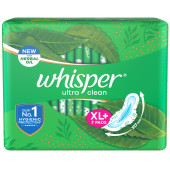10 Common Period Questions


So here you are going through puberty and have probably had your first period, though there may be tons of questions clouding your mind, which remain unanswered about the various bodily changes which are happening. Let us try to answer these questions for you.
What is a period?

A period is a term for the monthly discharge of blood and other tissues through the vagina. Every month the eggs inside the ovaries mature and travel to the uterus whose lining thickens to prepare for a possible pregnancy. If the egg is not fertilized, the uterus sheds this thick lining from the body in the form of blood.
When do girls get their first period?
Usually, girls get their first period by the age of 12-13, however it is normal to start the period anytime between the age of 10-15 years. About 2 years after her breasts start to develop, the girl will get her period, and about six months to a year before she starts, she will start experiencing vaginal discharge. There is no right age to begin menstruation, every body is unique and so it will develop at its own pace.
Do I smell when on a period?
There is no reason why your period will smell unless you have not changed your sanitary pads for more than the stipulated time. Menstrual blood smells when it comes in contact with the air. When it is absorbed through a pad, there is no reason for any foul odour. Be sure to change your pads every 4-6 hours to maintain hygiene and ensure no odour.
Does a period hurt?
Most girls complain of period pain due to stomach cramps, backache, breast tenderness etc. These cramps are a result of the uterus contracting to shed its lining, along with hormonal changes that take place in your body. But there is little to worry as there are quite a few home remedies you can adopt to alleviate the pain.
Why is my period late?

A late period is one that comes 8 or more days later than expected. While pregnancy is one of the biggest reasons for missing your period, you cannot rule out other reasons such as stress levels, significant weight loss, excessive workout, being closer to your menopause etc
Is there anything I cannot do when on my period?
Periods don’t have to stop you from your regular activities. You can continue with your school, playing sports, going out etc. In fact, being active helps in managing your cramps. Whisper Ultra sanitary pads ensure you go about your period days just like any other day of the month.
Can I get pregnant during my period?
Yes, there are chances that you can get pregnant while on your period. While the chances could be lower than other phases, it is still recommended to use birth control.
How long does a period last?
An average period last for 4-8 days, however this varies from one woman to another.
What is a menstrual cycle?
A menstrual cycle is the one in which a woman’s uterus sheds the thickened lining that was created to support the development of a fertilized egg. A typical menstrual cycle is of 28 days, it may range anywhere between 24-38 days.
How much blood will I lose?

It may look like a lot of blood, but a woman loses 2-3 tablespoons of blood during her period. In case you see yourself passing large clots of blood or bleeding heavily, do consult your doctor.
What are period symptoms?
Period symptoms are a set of physical and emotional side effects that most women experience. Some of the common premenstrual syndrome (PMS) symptoms include acne, bloating, cravings, tenderness of breasts, cramps, diarrhea, depression and irritability. Not all women experience all of these, and there are a few hacks to working around these for a happy period.
When do periods stop completely?
Women get their periods until they hit menopause, which is the time when she has not gotten her period for 12 months. Perimenopause that precedes this is where women start experiencing irregular periods. Menopause occurs, on an average between the age of 45-55 in women.
Periods are a natural and healthy part of a woman’s life, and now that you have some of your pressing questions answered, we hope that you have a great period and it does not deter your everyday activities.





